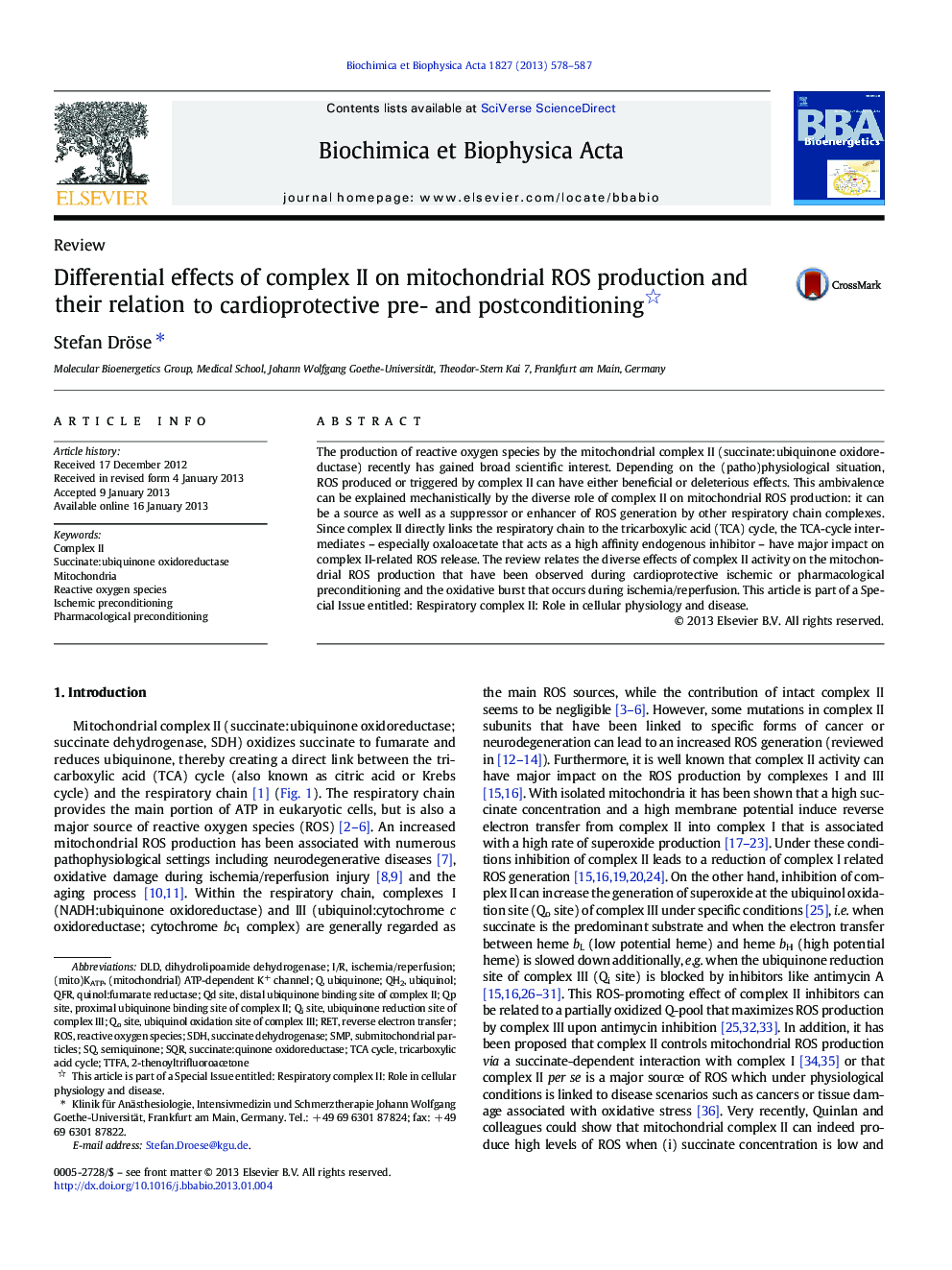| Article ID | Journal | Published Year | Pages | File Type |
|---|---|---|---|---|
| 1942252 | Biochimica et Biophysica Acta (BBA) - Bioenergetics | 2013 | 10 Pages |
The production of reactive oxygen species by the mitochondrial complex II (succinate:ubiquinone oxidoreductase) recently has gained broad scientific interest. Depending on the (patho)physiological situation, ROS produced or triggered by complex II can have either beneficial or deleterious effects. This ambivalence can be explained mechanistically by the diverse role of complex II on mitochondrial ROS production: it can be a source as well as a suppressor or enhancer of ROS generation by other respiratory chain complexes. Since complex II directly links the respiratory chain to the tricarboxylic acid (TCA) cycle, the TCA-cycle intermediates – especially oxaloacetate that acts as a high affinity endogenous inhibitor – have major impact on complex II-related ROS release. The review relates the diverse effects of complex II activity on the mitochondrial ROS production that have been observed during cardioprotective ischemic or pharmacological preconditioning and the oxidative burst that occurs during ischemia/reperfusion. This article is part of a Special Issue entitled: Respiratory complex II: Role in cellular physiology and disease.
► The differential influence of complex II on mitochondrial ROS production is reviewed. ► Complex II can be a source or a modulator of mitochondrial ROS. ► A connection to ischemia/reperfusion and preconditioning is discussed.
